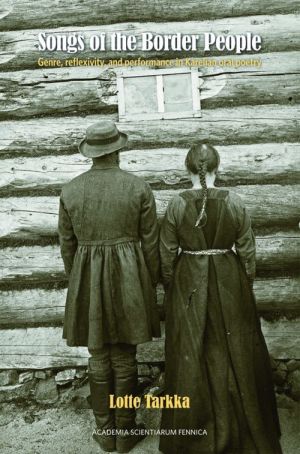In her comprehensive study of Karelian oral poetry Lotte Tarkka places this tradition within historical and ethnographic realities, contexts of local and elite ideologies, and the system of folklore genres. The songs of the border people emerge as praxis, the communicative creation of individual and collective identities grounded in a mythic-historical view of the world. The bond between the songs and their singers is articulated through an intertextual analysis of key cultural themes and the textual strategies used in their elaboration. In performance, singers and their audiences could evoke alternative realms of experience and make sense of the everyday in dialogue with each other, supranormal agents, and tradition.













